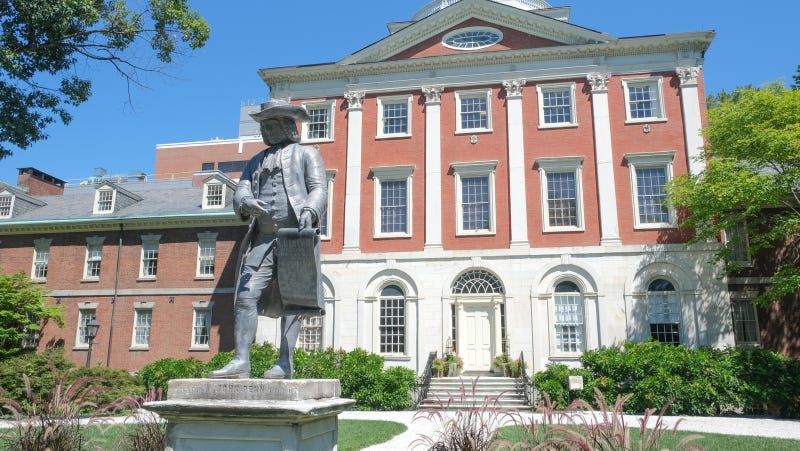
PHILADELPHIA (KYW Newsradio) — These days, we might take it for granted that we live in a city with state-of-the-art health care. But there was a time when we didn't even have hospitals in America.
In the colonies in the early 1700s, you would have to call a physician to your house if you needed medical care, and that wasn’t affordable for everyone.
Dr. Thomas Bond changed that in 1751, with the help of Benjamin Franklin. Together they founded Pennsylvania Hospital, the first chartered hospital in the nation, where donations could help cover the cost of care for those who couldn’t afford it.
The hospital’s Pine Building was built in 1756, and it still stands on Pine Street between Eighth and Ninth streets today.
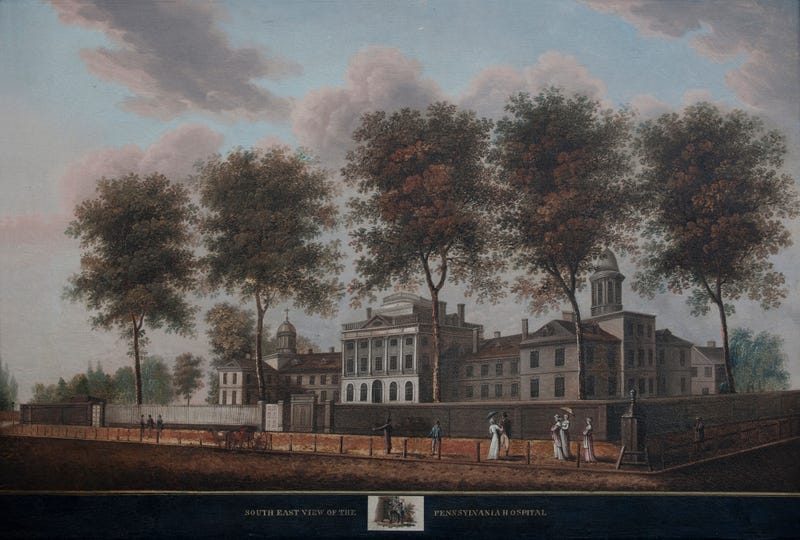
Inside the dome in the center of the Pine Building is the surgical amphitheater, which was in use from 1804 through 1868. Medical students, physicians, and the public were welcome to observe surgeries in this room.
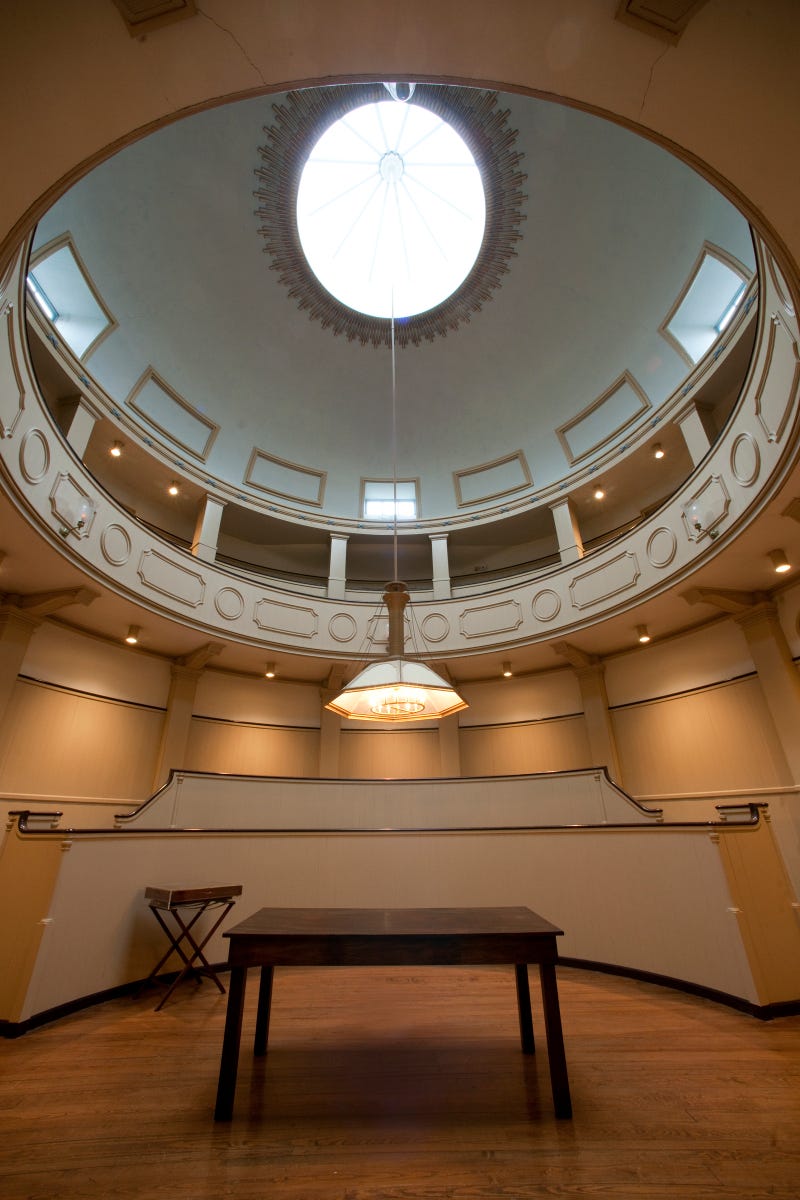
Those surgeries weren’t pretty to watch, though.
Stacey Peeples, the hospital’s curator and lead archivist, described what it looked like on The Jawncast.
“They would have those restraints to hold you down,” she said.
“You would also have pockets on the corners. And that would be for all the fluids that came out of you to drain, and it would drain onto the floor which was covered in sawdust.”
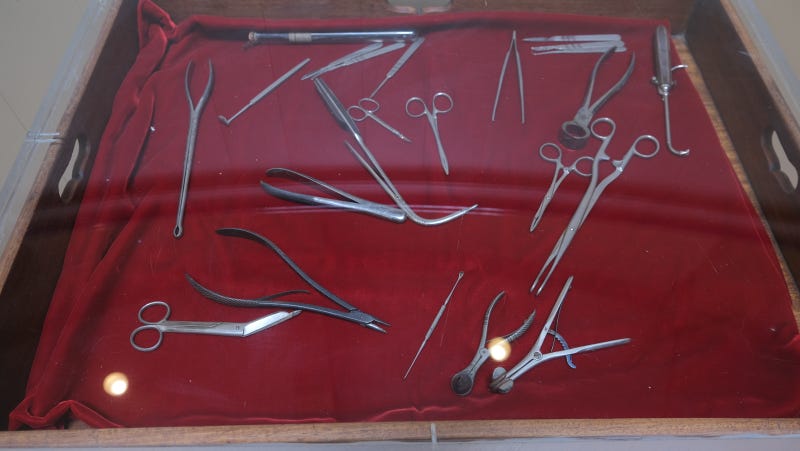
Despite the gruesome image, and lack of anesthesia or sanitation at the time, Pennsylvania Hospital became renowned for its surgical excellence.
They were also changing the game of mental health care — or really, starting the game. In that time period, most people thought mental illness was supernatural.
Peeples says the doctors at Pennsylvania Hospital saw things differently.
“You were not demonically possessed. A witch did not curse you. Nobody put a hex on you,” said Peeples.
“In fact, you weren't even being punished by God. There had to be a medical reason.”
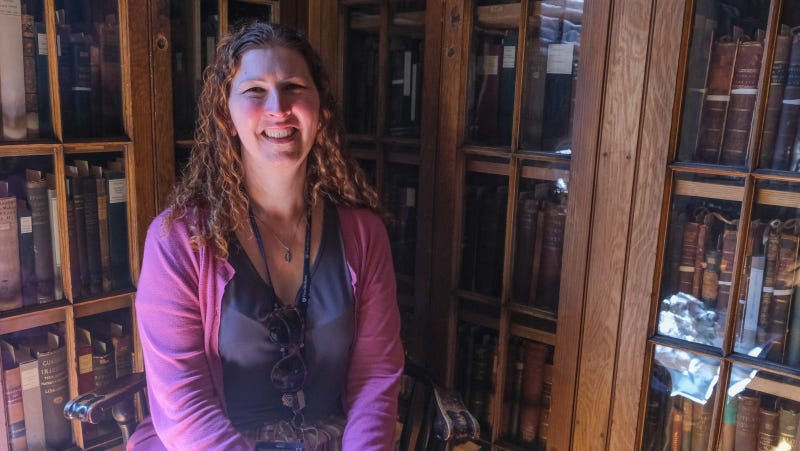
Dr. Benjamin Rush, known as the father of American psychiatry, joined Pennsylvania Hospital in 1783 and advocated for humane treatment of mentally ill patients, things as simple as getting heat in their rooms.
From its founding, the hospital’s mission was to care for “the sick-poor and mentally ill” in the community. Today, the staff still hold that dual purpose very close to heart.
“We're driven by the mission to care for this community, which is not just Center City Philadelphia anymore,” said Dr. Daniel Feinberg, the hospital’s chief medical officer. “We really have an eye toward health equity.”
Some of their major service areas today include obstetrics, neurosciences, orthopedics, and cancer care, working with the Abramson Cancer Center at Penn Medicine. They joined the Penn Medicine system in 1997.
They also have extensive mental and behavioral health services, including a continuously open walk-in crisis center and homeless outreach workers who bring mental health care out to the community.
Dr. Jody Foster, Chair of the Department of Psychiatry, says that kind of integrated health care - medical and behavioral health in the same space - is unique.
“Psychiatry has always been viewed as the stepchild of medicine,” she said. “And in recent years, what has emerged is the realization that comorbid mental health and medical issues are actually costing the system even more.”
It’s been a 200-year struggle to make mental health care a topic we can talk about. Penn Medicine Behavioral Health Service Line Administrator Patty Inacker thinks we’re still not as open about it as we should be.
“What has not changed is the stigma that is associated with having a mental health issue,” she said.
“We have a catchphrase that is not unique to us, but checkups from the neck up are equally as important as checkups from the neck down.”
Part of Pennsylvania Hospital’s mission now is to share that message, that getting mental health care is not only okay, but it’s also essential.
Hear more about Pennsylvania Hospital’s history and legacy on The Jawncast.
